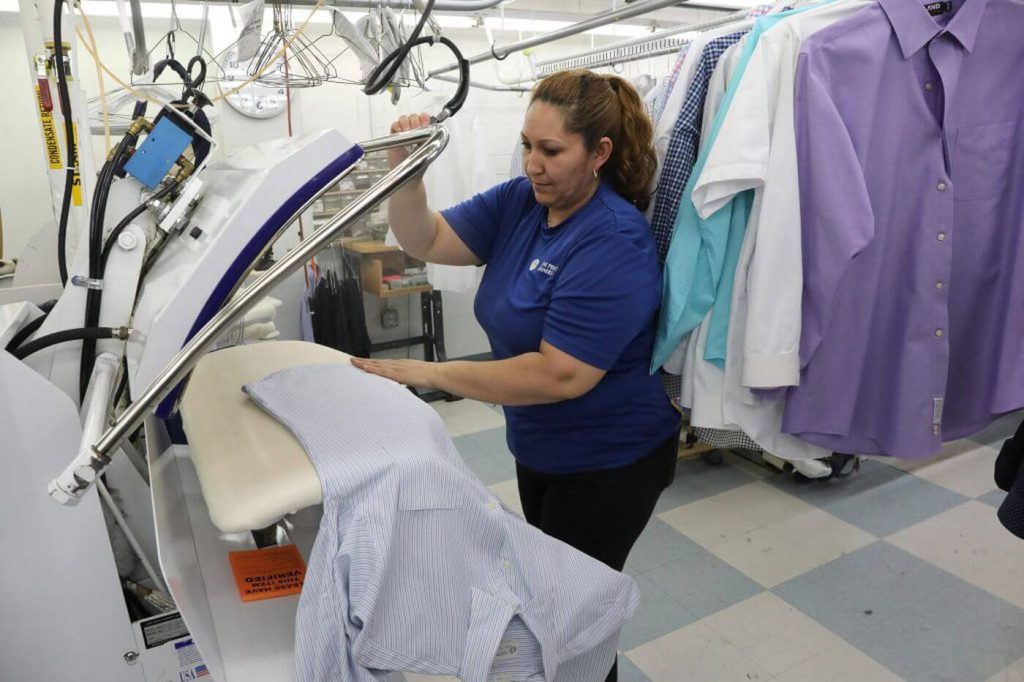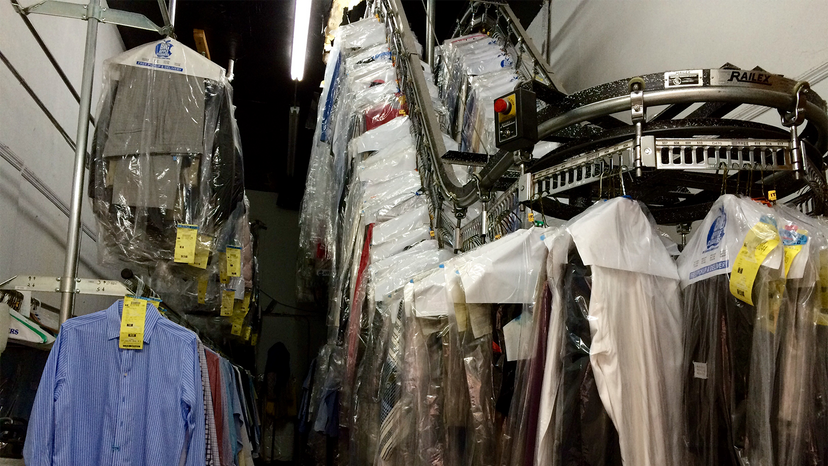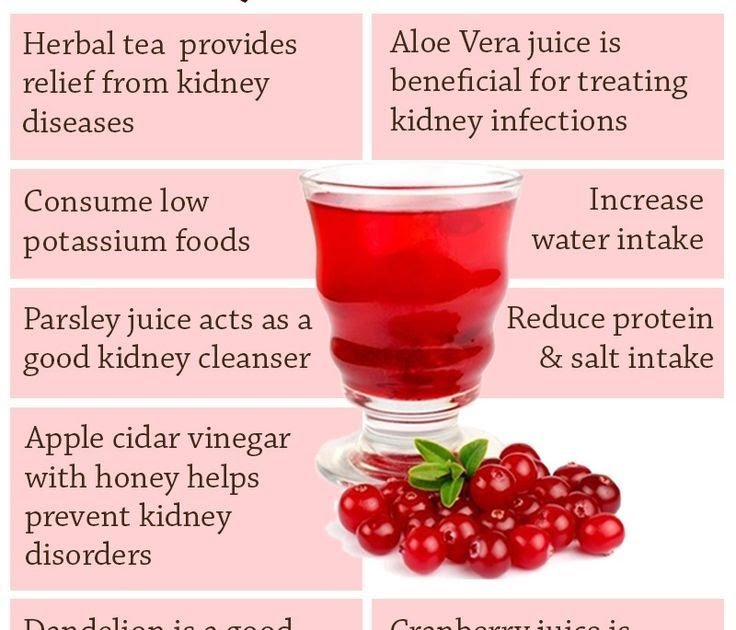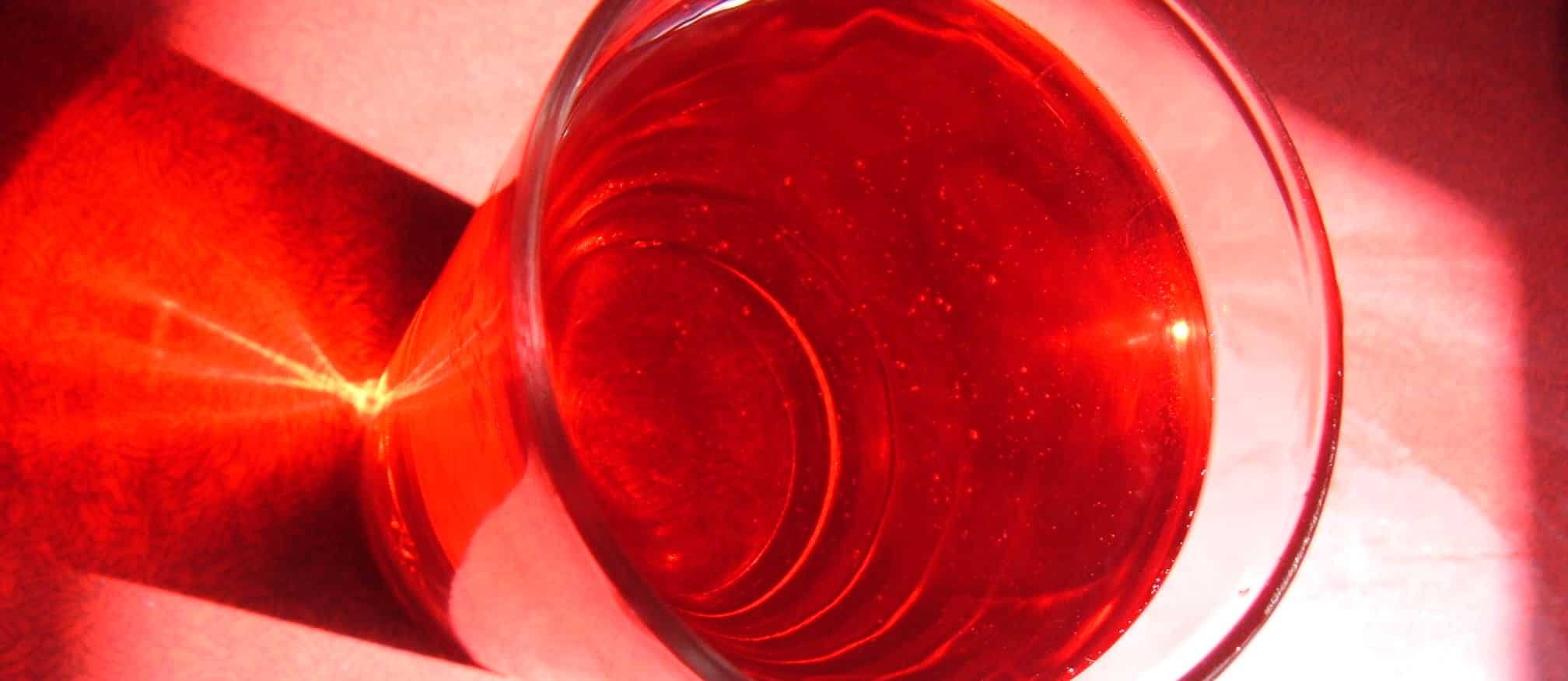Does Dry Cleaning Work?

Dry cleaning is a process that uses solvents to remove stains and dirt from fabrics that cannot be washed in water. It is often used for delicate garments or those that require special care. But does dry cleaning actually work? Let's take a closer look.
How does dry cleaning work?

The dry cleaning process begins with the pre-treatment of stains and spots using special solvents. The clothes are then loaded into a machine that looks similar to a washing machine, but uses solvents instead of water. The solvents are constantly filtered and recycled to ensure maximum cleaning power. Finally, the clothes are pressed and finished before being returned to the customer.
What types of fabrics can be dry cleaned?

Dry cleaning is suitable for a wide variety of fabrics, including silk, wool, rayon, and polyester. It is often used for delicate fabrics that are prone to shrinking or damage when washed in water. However, some fabrics may not be suitable for dry cleaning, such as leather or suede.
Does dry cleaning remove all stains?

Dry cleaning can effectively remove many types of stains, including oil, grease, and dirt. However, some stains may be more difficult to remove, such as ink or blood. It's important to point out that dry cleaning is not a miracle cure for all stains and may not be able to completely remove all of them.
Is dry cleaning better than washing clothes in water?

Whether dry cleaning is better than washing clothes in water depends on the type of fabric and the type of stain. For delicate fabrics, dry cleaning may be the only option to avoid damage. However, for everyday clothes, washing in water may be just as effective, if not more so, and a lot cheaper.
Can dry cleaning damage clothes?

Dry cleaning is generally safe for most fabrics, but there is always a risk of damage, especially if the clothes are not properly labeled or if the dry cleaner does not follow the proper procedures. The solvents used in dry cleaning can be harsh, and if not properly filtered or recycled, can cause damage to the fabric or leave a chemical odor.
How often should clothes be dry cleaned?

The frequency of dry cleaning depends on the type of garment and how often it is worn. Some garments, such as suits or dresses, may need to be dry cleaned after every wear, while others, such as sweaters or pants, may only need to be dry cleaned once or twice a season.
Is dry cleaning expensive?

Dry cleaning can be more expensive than washing clothes in water, with prices varying depending on the garment and the location. However, the cost may be worth it for delicate or expensive garments that require special care.
Conclusion
So, does dry cleaning work? The answer is yes, it can be effective for removing stains and dirt from a wide variety of fabrics. However, it's important to consider the cost and potential risks before deciding if dry cleaning is the best option for your clothes.
Related video of Does Dry Cleaning Work?
Does Cyanide Come From Almonds?
Almonds are one of the most popular nuts in the world, known for their delicious taste and numerous health benefits. However, there have been concerns about whether almonds contain cyanide, a deadly poison that can cause serious health problems. In this article, we will explore the truth behind this claim and whether or not you should be worried about consuming almonds.
What is Cyanide?

Cyanide is a chemical compound that is highly toxic to humans and animals. It can be found in various forms, including hydrogen cyanide and cyanogen compounds. Cyanide poisoning can lead to a wide range of symptoms, including headaches, dizziness, nausea, vomiting, and even death in severe cases.
Where Does Cyanide Come From?

Cyanide can be found in a variety of sources, including industrial waste, pesticides, and certain foods. In nature, some plants and fruits contain small amounts of cyanide as a natural defense mechanism against predators.
Do Almonds Contain Cyanide?
/overview-of-cyanide-poison-609287-v5b-5b99261646e0fb0025e48378.png)
Almonds do contain small amounts of cyanide in the form of amygdalin, a naturally occurring compound found in the seeds of many fruits and vegetables. However, the levels of cyanide in almonds are not high enough to cause any harm to humans.
In fact, the amount of cyanide in almonds is so low that you would have to eat a massive amount of almonds to experience any negative effects. To put this into perspective, you would need to consume more than 1,000 raw bitter almonds in one sitting to reach a potentially lethal dose of cyanide.
Are There Any Risks Associated With Eating Almonds?

Overall, almonds are considered safe to eat and are a great source of nutrients, including healthy fats, protein, and fiber. However, it is important to note that some people may have allergies or sensitivities to almonds that can cause adverse reactions.
In addition, some almond products, such as almond milk, may contain added sugars and other ingredients that can be harmful if consumed in large amounts. It is important to read labels carefully and choose high-quality almond products that are free from harmful additives.
Conclusion

In conclusion, while almonds do contain small amounts of cyanide, they are still safe to eat and provide numerous health benefits. As with all foods, it is important to consume almonds in moderation and choose high-quality products that are free from harmful additives.
By understanding the truth behind the cyanide in almonds myth, you can enjoy this delicious and nutritious nut without any worries.
Related video of Does Cyanide Come From Almonds?
Does Cranberry Juice Help Bladder Infections?

A bladder infection, also known as cystitis, is a common condition that affects millions of people every year. The symptoms of a bladder infection include pain during urination, frequent urination, and a feeling of urgency to urinate. While antibiotics are often used to treat bladder infections, some people believe that drinking cranberry juice can help prevent and treat these infections.
What is Cranberry Juice?

Cranberry juice is made from the fruit of the cranberry plant, which is native to North America. The juice is rich in antioxidants and has been shown to have a number of health benefits.
How Does Cranberry Juice Help Bladder Infections?

For many years, people have believed that drinking cranberry juice can help prevent and treat bladder infections. The theory behind this is that cranberry juice contains compounds that prevent bacteria from sticking to the walls of the bladder, making it more difficult for the bacteria to cause an infection.
While there is some evidence to support this theory, the research on the effectiveness of cranberry juice for preventing and treating bladder infections is mixed. Some studies have found that cranberry juice can be helpful, while others have found no benefit.
What Does the Research Say?

A number of studies have been conducted to investigate the effectiveness of cranberry juice for preventing and treating bladder infections. Some of these studies have found that cranberry juice can be helpful, while others have found no benefit.
A 2012 review of 24 studies found that cranberry juice can be effective for preventing urinary tract infections in women with a history of recurrent infections. However, the review also found that the evidence on the effectiveness of cranberry juice for treating bladder infections is mixed.
Another study published in the Journal of Urology in 2011 found that cranberry juice can be helpful for preventing bladder infections in women with a history of these infections. However, the study found no benefit for women who had never had a bladder infection before.
While there is some evidence to suggest that cranberry juice can be helpful for preventing and treating bladder infections, more research is needed to determine its effectiveness.
What are the Risks?

Cranberry juice is generally safe for most people to drink. However, some people may experience side effects, such as stomach upset or diarrhea, when they drink large amounts of cranberry juice.
Additionally, some people should avoid drinking cranberry juice altogether. People who take blood-thinning medications, such as warfarin, should avoid cranberry juice as it can increase the risk of bleeding. People with a history of kidney stones should also avoid cranberry juice as it can increase the risk of forming new stones.
Conclusion
While some studies have suggested that cranberry juice can be helpful for preventing and treating bladder infections, more research is needed to determine its effectiveness. Additionally, some people may experience side effects from drinking large amounts of cranberry juice, and some people should avoid it altogether. If you are experiencing symptoms of a bladder infection, it is important to talk to your doctor to determine the best course of treatment.
Related video of Does Cranberry Juice Help Bladder Infections?
Does Concrete Drain Batteries?

Introduction
Concrete is a widely used building material in construction. On the other hand, batteries are essential power sources for various devices. But what happens when these two things come together? Does concrete drain batteries? This article will explore the relationship between concrete and batteries.What is Concrete?
Concrete is a composite material made up of cement, water, and aggregates such as sand, gravel or crushed stone. It is one of the most durable and versatile materials used in construction. Concrete is used in various applications such as building foundations, floors, walls, bridges, and roads.What are Batteries?
Batteries are devices that store chemical energy and convert it into electrical energy. They are used to power various electronic devices such as smartphones, laptops, and cars. Batteries come in different types such as alkaline, lead-acid, lithium-ion, and nickel-cadmium.
Can Concrete Drain Batteries?
Concrete is a porous material, which means it can absorb water and other liquids. When a battery comes into contact with concrete, the electrolyte inside the battery can be absorbed by the concrete. This can lead to a decrease in the battery's performance and capacity.However, the extent to which concrete can drain batteries depends on various factors such as the type of battery, the amount of electrolyte present, and the length of time the battery is in contact with the concrete.Factors that Affect Battery Drainage
Type of Battery
Different types of batteries have different chemistries and compositions. Some batteries have more electrolyte than others, making them more susceptible to drainage when in contact with concrete.Amount of Electrolyte
The amount of electrolyte present in a battery also affects the extent of battery drainage. Batteries with higher levels of electrolyte are more likely to be affected by concrete drainage.Length of Time in Contact
The longer a battery is in contact with concrete, the more likely it is to experience drainage. The rate of drainage also increases the longer the battery is in contact with the concrete.Preventing Battery Drainage
To prevent battery drainage, it is important to keep batteries away from concrete. If batteries must be stored in a concrete structure, it is recommended to place them on a non-conductive surface such as wood or plastic. This will prevent the electrolyte from being absorbed by the concrete.Conclusion
In conclusion, concrete can drain batteries, but the extent of drainage depends on various factors. To prevent battery drainage, it is important to keep batteries away from concrete or store them on a non-conductive surface. By taking these precautions, you can ensure that your batteries last longer and perform better.Related video of Does Concrete Drain Batteries?
Does Chuck Norris Have Cancer?

Chuck Norris is a legendary actor, martial artist, and internet sensation. He has been a household name for decades and has a huge fan following all over the world. However, in recent years, rumors have been circulating about Chuck Norris having cancer. In this article, we will explore whether these rumors are true or not.
Chuck Norris' Health

Chuck Norris is now in his late 80s and has had a few health issues over the years. He has undergone several surgeries, including two partial knee replacements and a shoulder surgery. However, he has always been quite active and fit, and he continues to do so even today.
Despite his age and surgeries, there is no evidence to suggest that Chuck Norris has cancer. He has never spoken publicly about any cancer diagnosis, and there have been no reports of him undergoing any cancer treatment.
The Origin of the Rumors
The rumors about Chuck Norris having cancer started spreading on social media a few years ago. Some websites claimed that he had been diagnosed with prostate cancer and was undergoing treatment. However, these claims were not backed by any credible sources.
It is not uncommon for celebrities to be the target of such rumors. People often spread false information about them on the internet, and it can be challenging to differentiate between fact and fiction.
Chuck Norris' Philanthropy

Chuck Norris is not only known for his acting and martial arts skills, but he is also a philanthropist. He has been involved in several charitable organizations over the years and has donated to various causes.
He has supported organizations such as World Vision, Make-A-Wish Foundation, and the Veterans Affairs Volunteer Service. He has also started his own foundation, KickStart Kids, which provides martial arts training to children in underserved communities.
The Importance of Fact-Checking

The rumors about Chuck Norris having cancer highlight the importance of fact-checking. It is essential to verify information before sharing it on social media or other platforms. False information can spread quickly and cause unnecessary panic and confusion.
It is also crucial to rely on credible sources when looking for information. If there is no credible source to back up a claim, it is likely that it is false.
Conclusion
In conclusion, there is no evidence to suggest that Chuck Norris has cancer. The rumors about his health are unfounded, and it is essential to rely on credible sources when looking for information. Chuck Norris continues to be a beloved figure, known for his acting skills, martial arts expertise, and philanthropy.